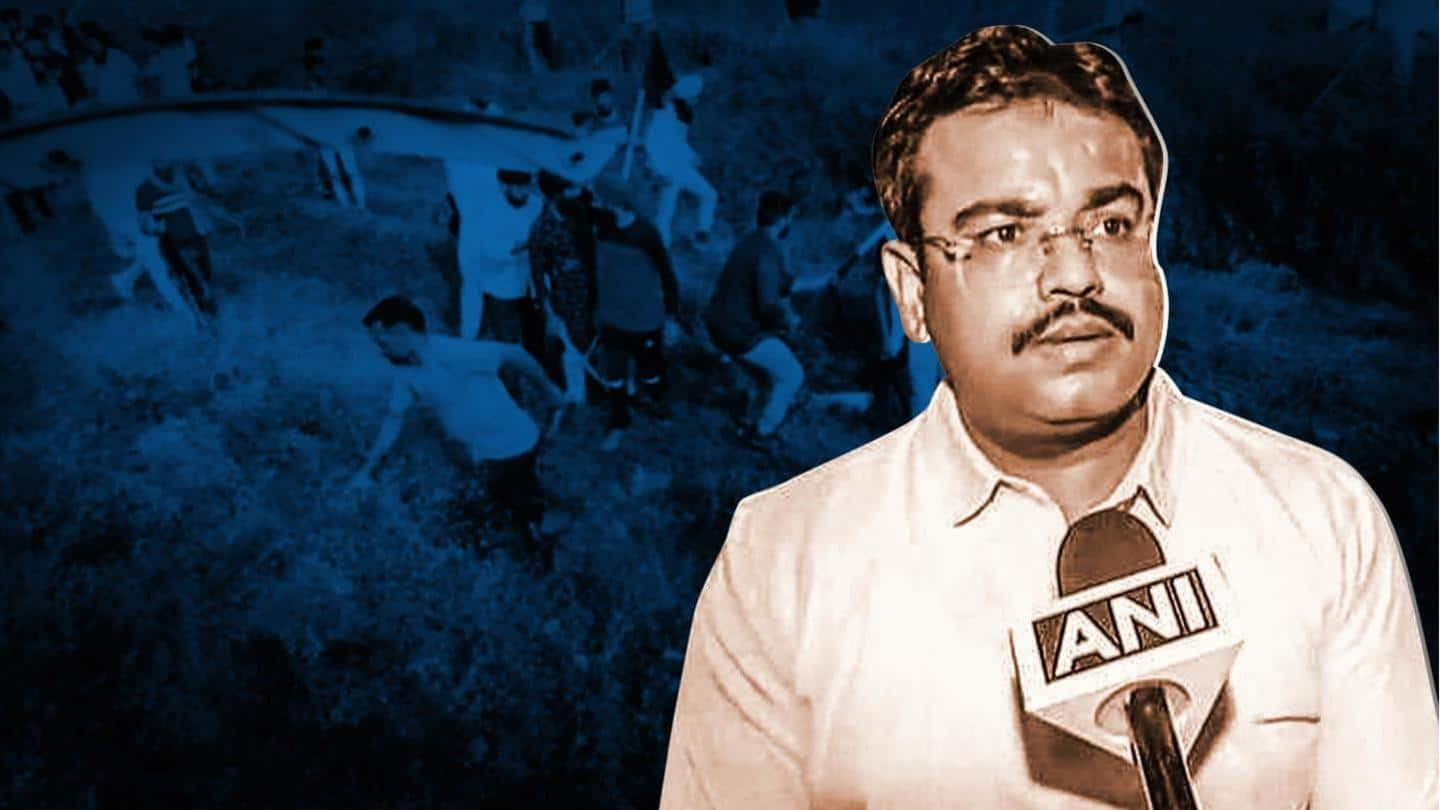
Lakhimpur Kheri violence: Accused Ashish Mishra surrenders after SC's orders
What's the story
Ashish Mishra, the main accused in the Lakhimpur Kheri violence case, reportedly surrendered in the Chief Judicial Magistrate's court and returned to the district jail on Sunday.
The Supreme Court last week canceled his bail granted by the Allahabad HC and directed him to surrender within a week.
Lakhimpur Kheri District Jail Superintendent PP Singh has also confirmed Mishra is back in the prison.
Context
Why does this story matter?
The Lakhimpur Kheri incident took place on October 3, 2021, when Mishra's three-vehicle convoy allegedly mowed down a protest rally of farmers, triggering violence.
Mishra—Union Minister of State Ajay Mishra's son—was accused of driving the car that rammed into the protestors.
Though Mishra was arrested soon after, in February 2022, the HC granted him bail, which was set aside by the SC last week.
SC's order
What did the Supreme Court say?
On April 18, the Supreme Court stated the Allahabad High Court had shown in a "tearing hurry" in granting relief to Mishra and taken a "myopic view of the evidence."
The SC further said the HC had denied a "fair and effective hearing" to the victims.
It also noted victims have "unbridled" rights to be part of the proceedings at every stage—including bail hearings.
Details
More details on the Supreme Court's order in the case
The top court's decision came last week when it was hearing a plea by farmers seeking the cancellation of Mishra's bail granted by the HC.
At the time, senior advocate Dushyant Dave, representing the farmers, also petitioned the SC to direct the HC to transfer the case to a different division.
However, Chief Justice NV Ramana denied the request, stating that it was inappropriate.
Information
What exactly had happened in Lakhimpur Kheri?
On October 3, farmers protesting the Centre's now-repealed agricultural laws held a demonstration against UP Deputy CM Keshav Prasad Maurya's Lakhimpur Kheri visit.
However, Mishra's convoy allegedly mowed down the protestors, triggering violence. Eight people were killed in the incident.
Mishra was arrested a week later, after the Supreme Court pulled up the Uttar Pradesh government for delay in action in the case.
SIT's recommendations
SIT was formed to investigate the case
In October, the UP government had constituted a Special Investigation Team (SIT) comprising local police officers to probe the Lakhimpur Kheri violence.
However, in November, following the SC's directions, a new SIT with three senior IPS officers and a retired judge was formed.
Notably, in February, when the HC granted Mishra relief, this SIT had recommended the UP government twice to challenge his bail.
The reason?
Why did state government not challenge Mishra's bail?
To recall, on April 4, when the Supreme Court had reserved its order on the farmers' plea seeking the cancellation of Mishra's bail, the court remarked it expected the state government to challenge his bail as per the SIT's recommendations.
However, the UP government claimed it did not do so as Mishra was neither a threat to the case's witnesses nor a "flight risk."
Information
Why is the case so controversial?
The Lakhimpur Kheri incident is highly controversial as it involved a Union MoS's son. Moreover, it was seen as an attempt to silence farmers involved in the year-long protest over the farm laws, which were repealed by the Centre a month after this incident.